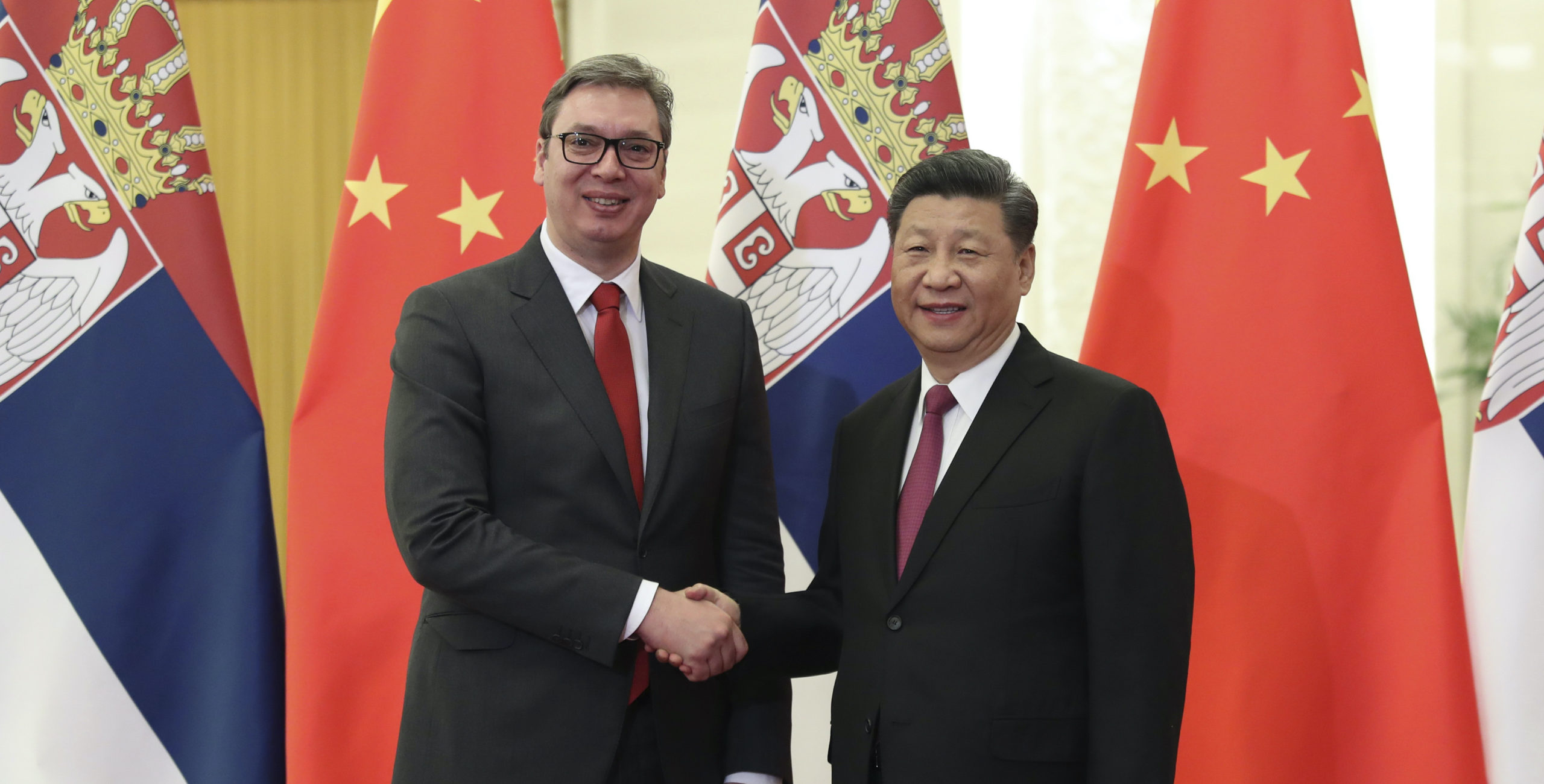Tensions in central Europe rose this weekend when six Chinese Air Force transport planes landed unexpectedly in Belgrade. Reports quickly emerged that the planes were delivering HQ-22 surface-to-air missile systems to Serbia, stoking fears of further destabilisation in the western Balkans.
The arrival of weapons from an eastern power which, like Serbia, doesn’t recognise the independence of Kosovo clearly has the potential to stir regional tensions. So Kosovans will surely have been relieved to hear reassurances from Zhao Lijian, a spokesperson for China’s Foreign Ministry, that “the project is not related to any third party, nor is it related to the current situation.”
Leaving aside whether we can take China’s Foreign Ministry for its word, it’s anyone’s guess which “current situation” Zhao was referring to. War in Ukraine, NATO’s growing military presence in eastern Europe, instability in Bosnia and Herzegovina, or Kosovo’s renewed calls for NATO membership in response to Russia’s “destructive interest in our region” are all contenders.
Yet there’s no doubt about one thing: China’s arms delivery to Serbia was a show of strength. China hasn’t openly aligned itself with Russia — and against NATO — on the Ukrainian war, but there’s little doubt about where its allegiances lie.
The eastern axis of power finds its closest European ally in Serbia, which still views NATO as an “enemy” due to the alliance’s bombing campaign against Yugoslavia during the Kosovo War. At a memorial service at the end of March, Defence Minister Nebojša Stefanović said NATO bombing was “an injustice that has been done to our country, for which no one has yet apologised clearly or loudly enough”.
Yet Serbia’s geopolitical stance is complex, and hostility towards NATO is offset by its candidate status to join the EU. Torn loyalties raise the prospect of the country becoming a proxy for great powers; U.S. officials warned Belgrade against buying Chinese weapons, and Germany this week said Serbia must conform with EU foreign and security policy if it ever wants to join the bloc.
No matter how hard China tries to decontextualise its arms delivery, then, the global situation imbues it with sinister meaning. While Vladimir Putin portrays NATO as a hostile provocateur, Serbia’s security is supposedly being secured by “open enemies” of the West, in Montenegrin President Milo Đukanović’s words.
China is eager to seize the PR opportunity because the fortifying effect of war in Ukraine has left it little room for manoeuvre elsewhere in Europe. Chinese soft power in Eastern Europe was already on the wane prior to the war, due to the failure of much-vaunted Belt and Road initiatives and defiance from minnows such as Lithuania over the status of Taiwan.
Serbia’s neighbour Hungary is China’s closest friend in the EU, so Beijing will have been relieved at Viktor Orbán‘s landslide election victory earlier this month. The Hungarian opposition had promised to scrap major Chinese cooperation projects, including the controversial establishment of a Budapest branch for Shanghai’s Fudan University. And as Hungary and Serbia are China’s two best friends in Europe, it’s fitting that a huge upgrade project for rail links between the two countries is being funded by Chinese loans.
In addition to Orbán’s re-election, the confirmation of another five years in power for Serbian president Aleksandar Vučíć will have therefore brought even bigger cheers. Other eastern European countries are turning their backs, but Beijing can still count on its friends in Budapest and Belgrade.










Join the discussion
Join like minded readers that support our journalism by becoming a paid subscriber
To join the discussion in the comments, become a paid subscriber.
Join like minded readers that support our journalism, read unlimited articles and enjoy other subscriber-only benefits.
Subscribe